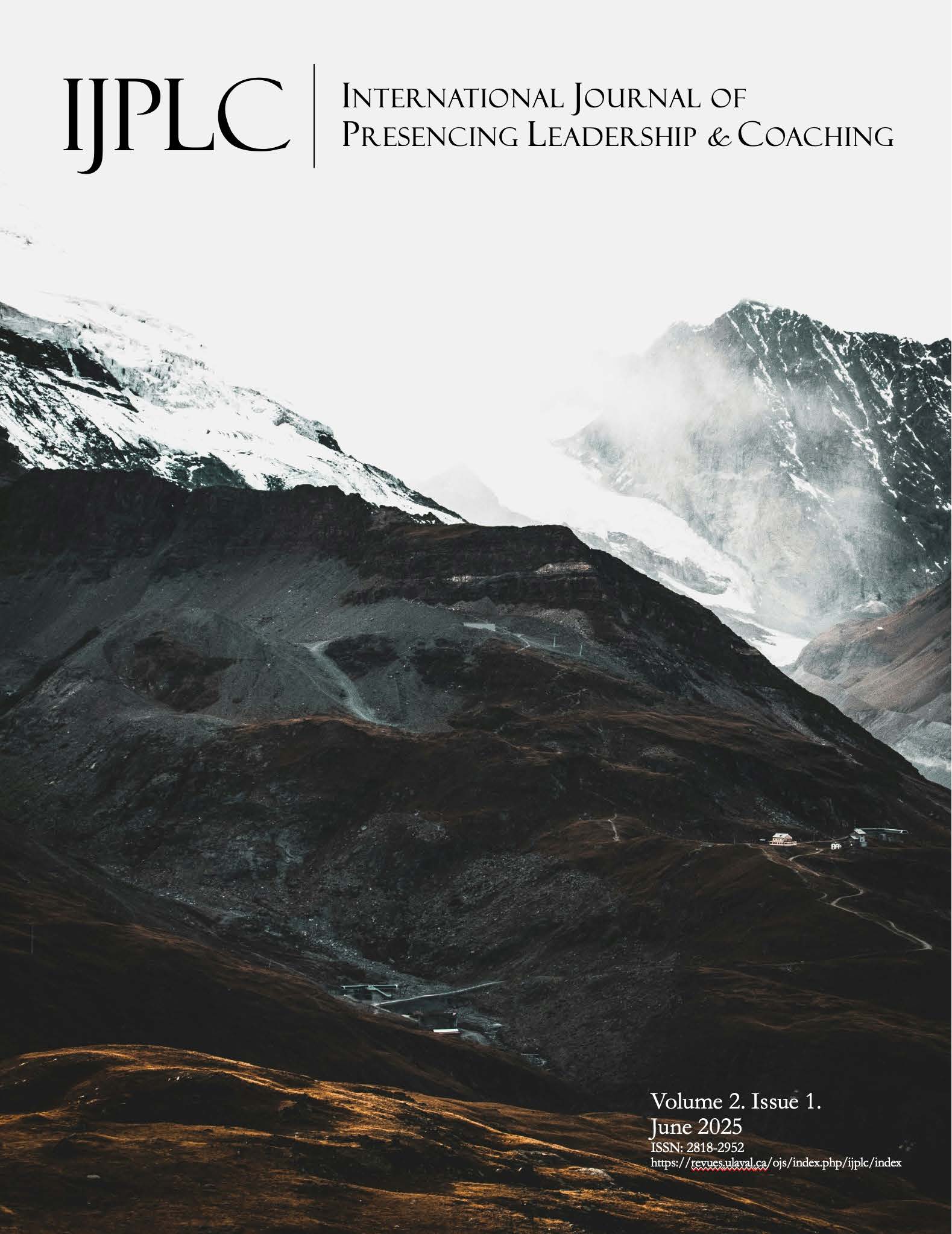BEING EMBODIED IN NAVIGATING CHALLENGE
A Catalyst for Presencing Leadership
DOI:
https://doi.org/10.69470/1emtyg97Keywords:
presencing, leadership, embodiment, process ontology, presencing mastery, presenceAbstract
The challenges of our complex, uncertain and ambiguous world take us to the limits of conventional ways of knowing and being in leadership. We might see this as an invitation to move beyond the conventional and attune to our wider senses and field consciousness, which allows us to access presenced ways of knowing and navigating that hold generative potential. Integrating a presencing disposition in our leadership, however, is not a temporary practice to add to our toolbox; it requires an ontological apprenticeship of grounding our being in deeper realms of presence from where new answers and resources may arise. These states of presence are not accessible or sustainable without being deeply connected to our bodies and -through that- to our deeper essence and source. Based on a two-year collaborative action research process with a group of executive leaders, this article highlights the catalysing role of embodiment in navigating leadership challenge – not only to facilitate a presencing disposition on a day-to-day basis, but also to ground us in an ontological paradigm that enables a way of being and relating to reality in a generative presencing way. In particular, this article suggests two practices that facilitate our deep embodiment in this apprenticeship: The regular practice of grounding, and the practice of navigating with the felt sense of a presencing insight over time. Both micro practices, being implemented into day-to-day leadership long-term, they appear to have the potential to enable us to navigate the complex and unknown with an embodied compass, to ground us in an ontological paradigm that allows us to access resources and insights beyond the rational-analytic realm, and to tap into the generative potential inherent in our given reality.
Downloads
Published
Issue
Section
License
Copyright (c) 2025 Katharina Sell (Author)

This work is licensed under a Creative Commons Attribution 4.0 International License.


